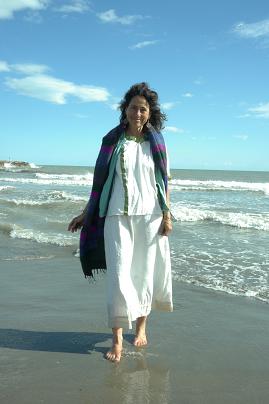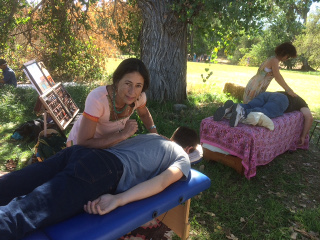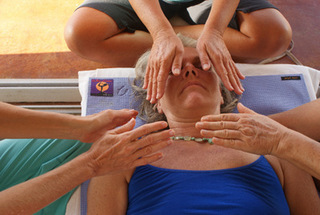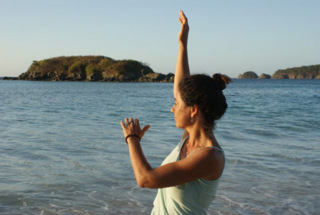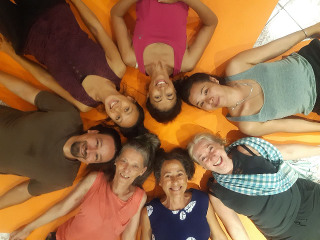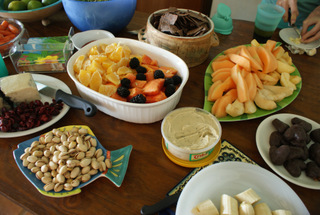Qigong
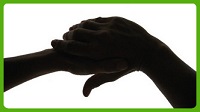 Qigong literally means the practice of cultivating life force energy. The word Qi is interpreted as energy or life force. Qi is the same as Universal energy, Prana in Hindi, and Ruach in Hebrew. Gong refers to working at something, or practicing something, which is then cultivated by that practice. The word Qigong is also found written as: Qi gong, Chi Kung or Chi Gung.
Qigong literally means the practice of cultivating life force energy. The word Qi is interpreted as energy or life force. Qi is the same as Universal energy, Prana in Hindi, and Ruach in Hebrew. Gong refers to working at something, or practicing something, which is then cultivated by that practice. The word Qigong is also found written as: Qi gong, Chi Kung or Chi Gung.
I practice and teach Master Foo Wei Zhong’s Wuji Gong in my Melting the Dragon workshops because this style of Qigong has informed my approach to healing. I also include various internal and external Qigong practices I learned from several sources including Master Mantak Chia at his Tao Garden in Thailand. I am forever thankful for having met the teachers whose paths I have crossed. Those encounters were important for.
Qigong (or chi kung) is an ancient internal Chinese practice which often uses graceful movements and controlled breathing techniques to promote the circulation of qi within the human body and enhance a practitioners overall health.
There are three main reasons why people practice Qigong:
– To gain strength, improve health or reverse a disease
– To gain skill working with qi to become an advanced healer
– To become more connected with the “Tao, God, Higher Source, Great Spirit” for a more meaningful connection with nature and the universe.
In its simplest form, the Chinese character for Qi in Qigong, can mean air, breath or life force. Gong means work so Qigong is therefore the practice of “working” or cultivating ones “life force”.
Attitudes toward a scientific basis for Qigong vary. Most western medical practitioners and many practitioners of traditional chinese medicine as well as the chinese government, view Qigong as a set of breathing and movement exercises with possible benefits to health through stress reduction and exercise. Other practitioners view Qigong in more metaphysical terms claiming that qi can be felt as a vibration or electrical current and physically circulated through energy channels called meridians. Many testify to a reduction of pain or elimination of pain through the practice of qigong.
The Wuji gong I practice and teach literally changed my perception of how we heal. I changed my massage practice from a “fixing the body” to a listening of the body” approach. Eventually it changed my life direction helping me to be more in tune with my intuition, energy, vibration and perception. This Wjuigong style was developed by Master Foo of the Emei Mountain Monestary for the west.

